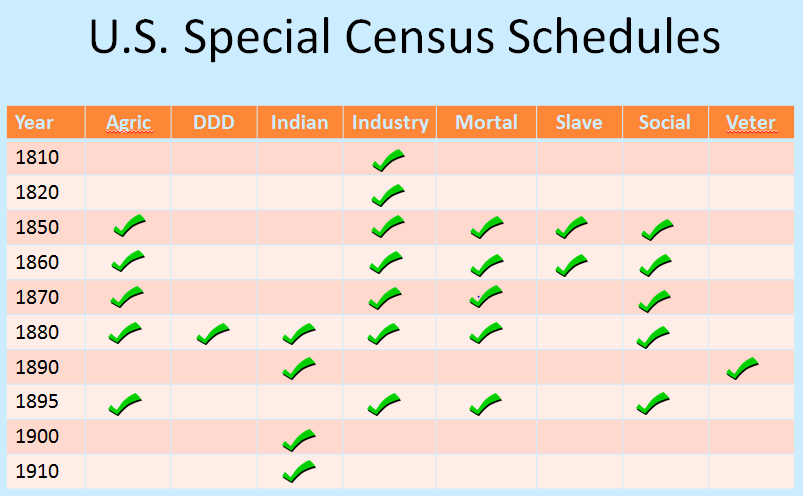Blog

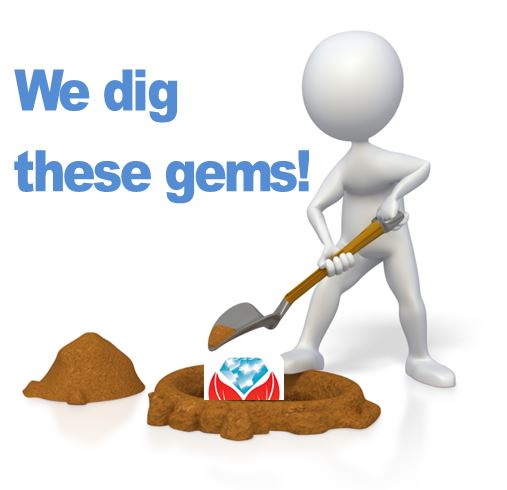
We Dig These Gems! New Genealogy Records Online
Here’s our weekly roundup of new genealogy records online. Should you search for your ancestors in any of these databases?
BRITAIN, MERCHANT SEAMAN. Findmypast.com has added nearly a quarter million records to its 1918-1941 database of British Merchant Seaman.
IDAHO VITAL RECORDS. New indexes of Idaho births (1861-1911) and deaths (1938-1961) are now searchable for free at FamilySearch.org.
ILLINOIS DEATHS. Over 3.7 million records have been added to a free index of Cook County, Illinois deaths at FamilySearch.org. Cook County is home to the city of Chicago.
INDIANA CHURCH RECORDS. A new database of Indiana United Methodist Church Records(1837-1970) is available at Ancestry.com. According to the collection description, “The registers may contain baptisms, marriages, burials, memberships, and lists of clergy.”
IRISH BIRTHS, BAPTISMS AND MARRIAGES. Complementing recent online Irish parish records collections are two databases of Non-conformist church records (meaning those not in alliance with the Church of Ireland) now at Findmypast: births/baptisms and marriages.
ONTARIO BIRTHS. FamilySearch has added over 125,000 indexed records to its collection of Ontario, Canada birth records.
UNITED STATES and NEW ZEALAND ARTICLES. Findmypast.com has updated its PERSI database with over 45,000 new indexed entries and images. Ten publications spanning 1883-1984 include articles covering several New Zealand and several U.S. states, including Georgia, Maine, Massachusetts, Pennsylvania, and Utah.
VARIOUS MARRIAGE RECORDS. FamilySearch.org has published or updated several new free marriage records collections. Click here to see the full list, which includes British Columbia, Durham (England), Indiana, Kansas, Liberia, Louisiana, Maryland, Minnesota, Mississippi, Missouri, New York, North Carolina, Ohio, Oklahoma and Utah.
 Don’t see the records you hoped to among these new genealogy records online? Click here to read a blog post on two powerful tools to help you search for elusive records.
Don’t see the records you hoped to among these new genealogy records online? Click here to read a blog post on two powerful tools to help you search for elusive records.
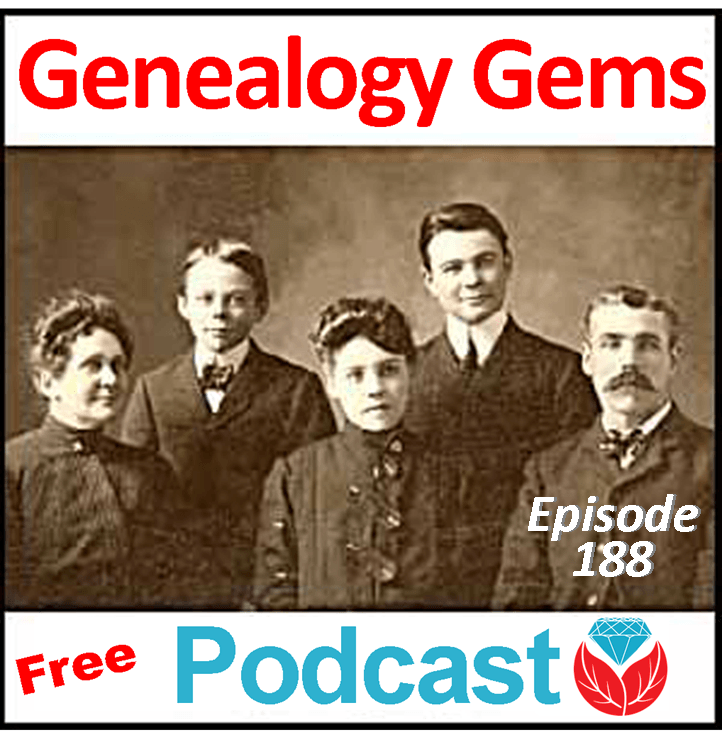
Free Genealogy Gems Podcast Episode 188 Now Available
 Genealogy Gems Podcast episode 188 has published. It’s packed with news, tips and inspiration that can help your family history research now. Check it out!
Genealogy Gems Podcast episode 188 has published. It’s packed with news, tips and inspiration that can help your family history research now. Check it out!
The newest episode of the free Genealogy Gems Podcast is now available. Host Lisa Louise Cooke shares her signature variety of news, inspiration, innovative strategies and tips you can use now. Highlights from the Genealogy Gems podcast episode 188 include:
- RootsTech news and resources for everyone;
- New records online for Ireland and the United States;
- Two inspiring emails from listeners who unravel family mysteries with determination, skill and Google sleuthing;
- A Genealogy Gems Book Club update with more thoughts on the featured title Orchard House: How a Neglected Garden Taught One Family to Grow
by Tara Austen Weaver and book recommendations from RootsTech attendees;
- A critique of a recent NPR article on genetic genealogy by Your DNA Guide Diahan Southard; and
- A great conversation with Cindy Cochran and Sabrina Riley of the Lincoln-Lancaster County Genealogical Society Library at Union College in Lincoln, Nebraska.
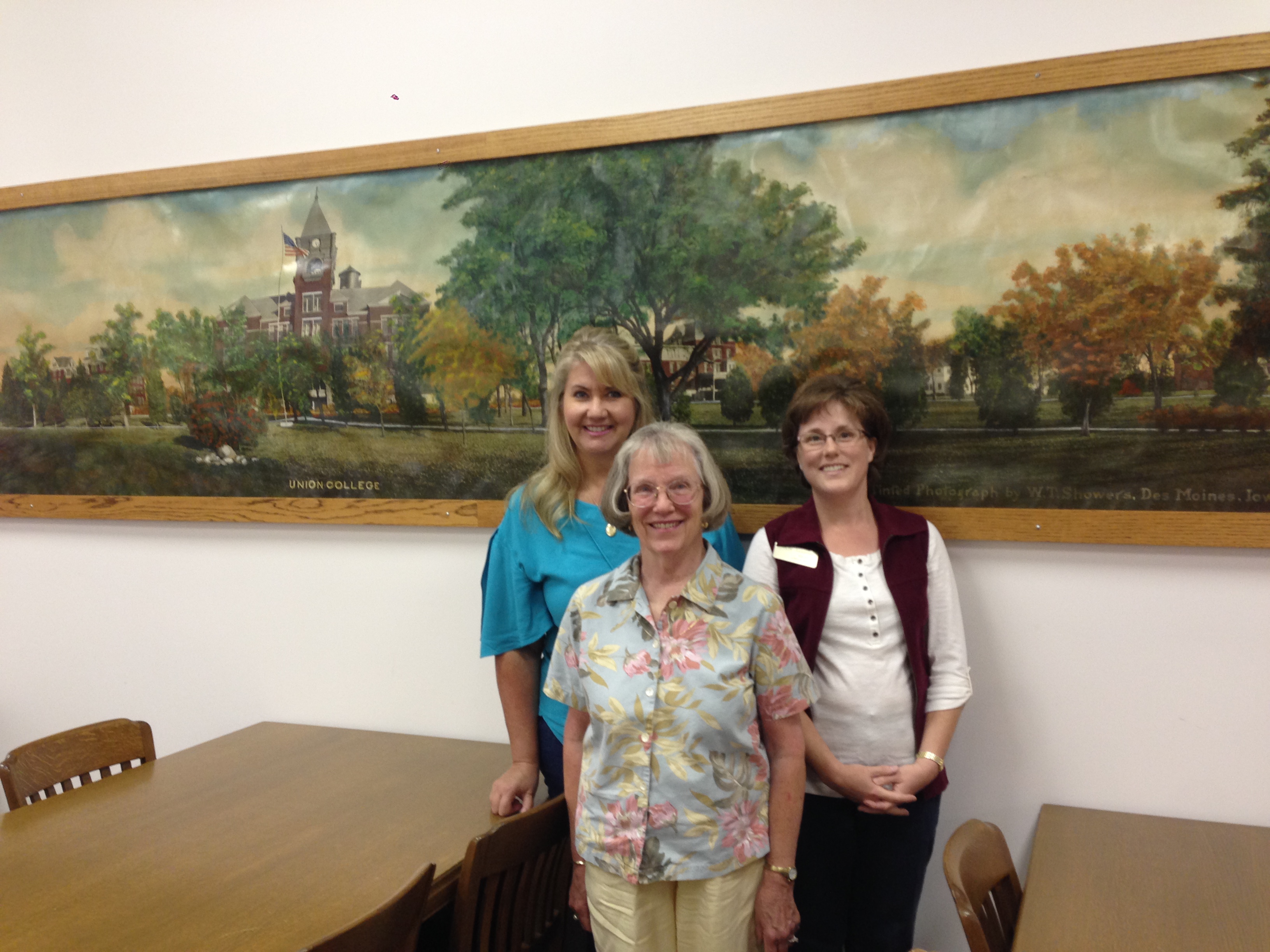
Lisa Louise Cooke with Cindy Cochran and Sabrina Riley
My favorite part of this episode for me was Lisa’s conversation with Cindy and Sabrina. It was fun to meet two interesting women who help keep their corner of the genealogy research world running smoothly. I don’t even have Nebraska roots but I appreciated the inside “look” at their genealogy collection. It reminds me what gems–human and archival–may be tucked away on college campuses that love and welcome researchers.
New to the Genealogy Gems podcast? Welcome! Click on the link above to listen; subscribe and listen in iTunes or download the Genealogy Gems app (click here to learn more about these options).
 Do you already listen to the free Genealogy Gems podcast? Will you please tell your friends and fellow “genies” about it? We especially appreciate your recommendations on your favorite social media sites–thanks for sharing this post!
Do you already listen to the free Genealogy Gems podcast? Will you please tell your friends and fellow “genies” about it? We especially appreciate your recommendations on your favorite social media sites–thanks for sharing this post!
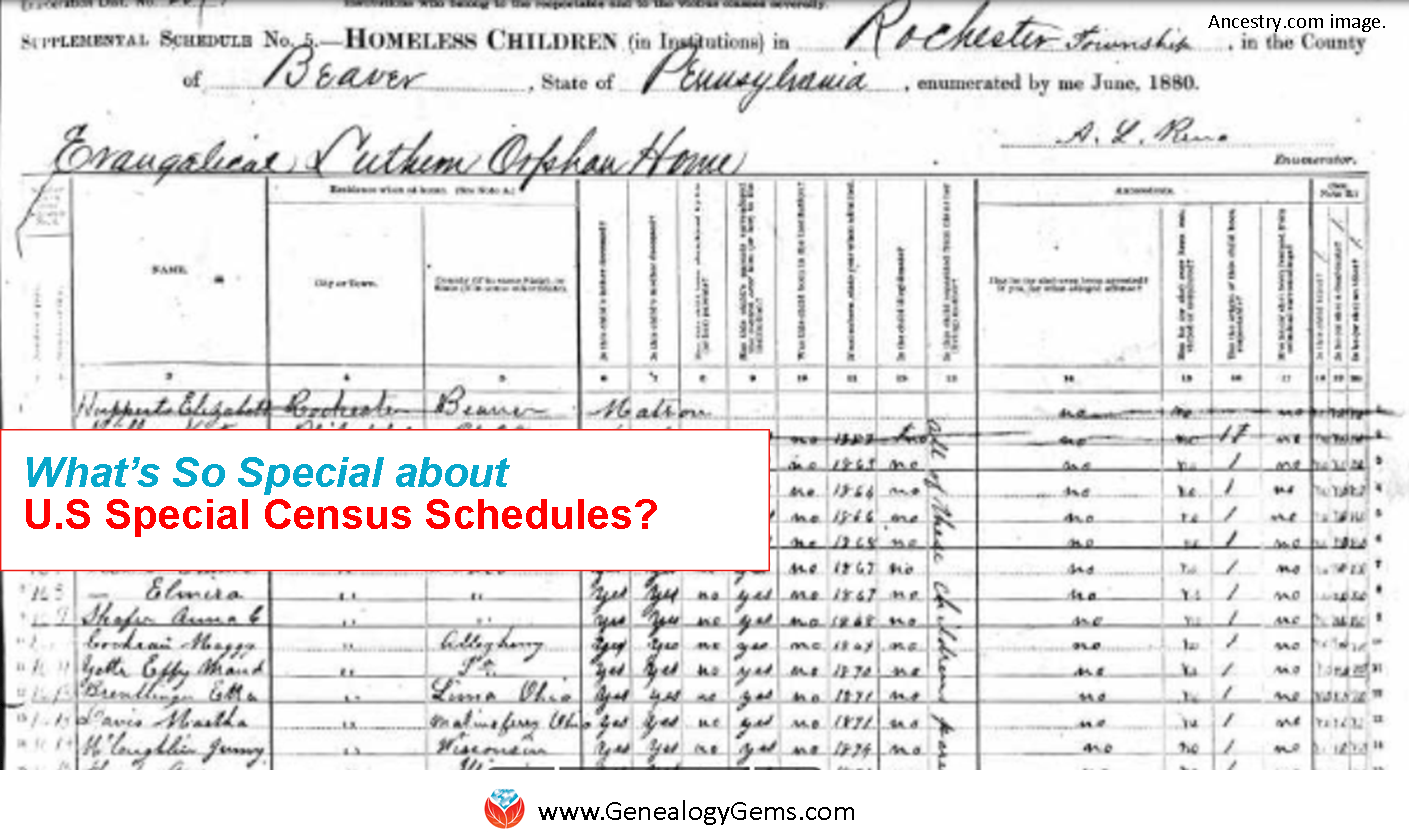
What’s So Special about US Special Census Schedules?
 Who should pay attention to the US special census schedules? Anyone whose relatives appear in the US census between 1850-1880 (and some whose relatives show up in 1810-1820 and 1890-1910).
Who should pay attention to the US special census schedules? Anyone whose relatives appear in the US census between 1850-1880 (and some whose relatives show up in 1810-1820 and 1890-1910).
Many records about our ancestors point to even more records. Such is the case with the US Census. For many decades, the census records we most commonly consult are actually just “Schedule 1” of several census forms in which your ancestors may appear. Better yet, many of the surviving special census schedules are now online at Ancestry.com and other genealogy websites.
So who should be paying attention to surviving US special census schedules? Everyone whose ancestors:
- Appear in U.S. censuses between 1850-1880;
- Worked in industrial occupations in 1810-1820;
- Were veterans of the U.S. Civil War and still alive in 1890;
- Were Native Americans in 1900-1910.
Here’s a quick table showing the years for which the following schedules survive (for at least some locations): Agricultural; Defective, Dependent and Delinquent; Indian, Industry/Manufacturing; Mortality; Slave; Social and Veterans Schedules.
What’s in the US special census schedules and where can I find them?
Depending on the year and the schedule type, you may discover information about recently-deceased ancestors (in the mortality buy medicine online kolkata schedules, 1850-1880); disabled or institutionalized ancestors (in the 1880 DDD schedule); enslaved or slave-holding ancestors (in the 1850-1860 censuses); Civil War veterans (1890 only); farmers (1850-1880) and more. Some of what you’ll find may be uniquely revealed in the US special census schedules.
Many of the special schedules have been digitized and indexed and are available online. Especially for 1850-1880, when so many schedules were created and so many different people were included, it’s worth searching for your ancestors in each one.
The syllabus for my RootsTech lecture, “Whats Special about US Special Census Schedules?” includes a detailed summary of what’s in each special schedule, where to find them (online and offline), and additional tips that may help you get the most out of them.
Remember: for many years, the US census population schedule is just the beginning of the census. Dig into those special censuses and see what you find!
 I wish more people knew about the U.S. Special Census Schedules. Will you help me spread the word? Please share this link on your favorite social media site and with fellow genealogists and your society members.
I wish more people knew about the U.S. Special Census Schedules. Will you help me spread the word? Please share this link on your favorite social media site and with fellow genealogists and your society members.


